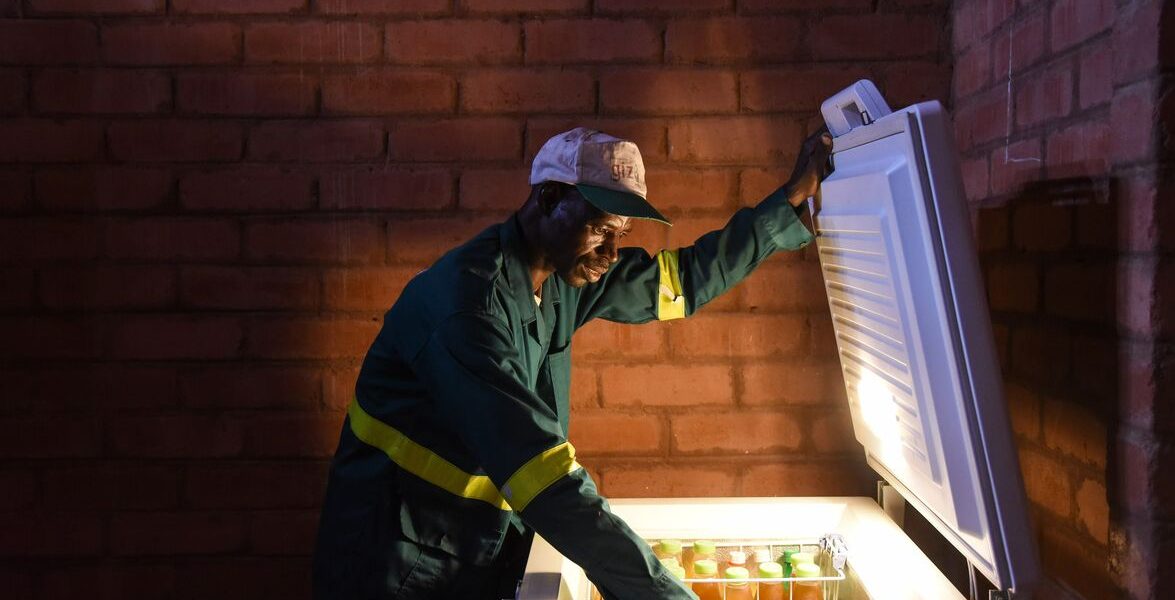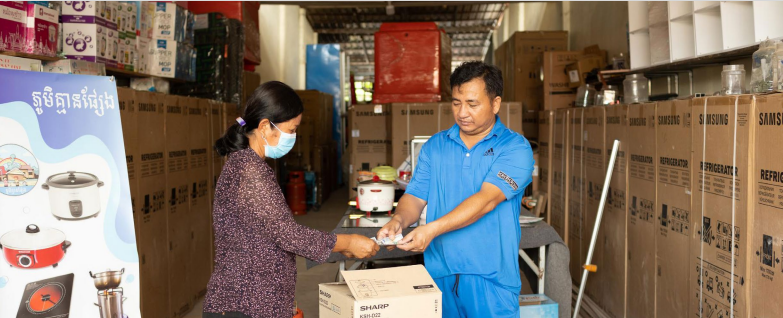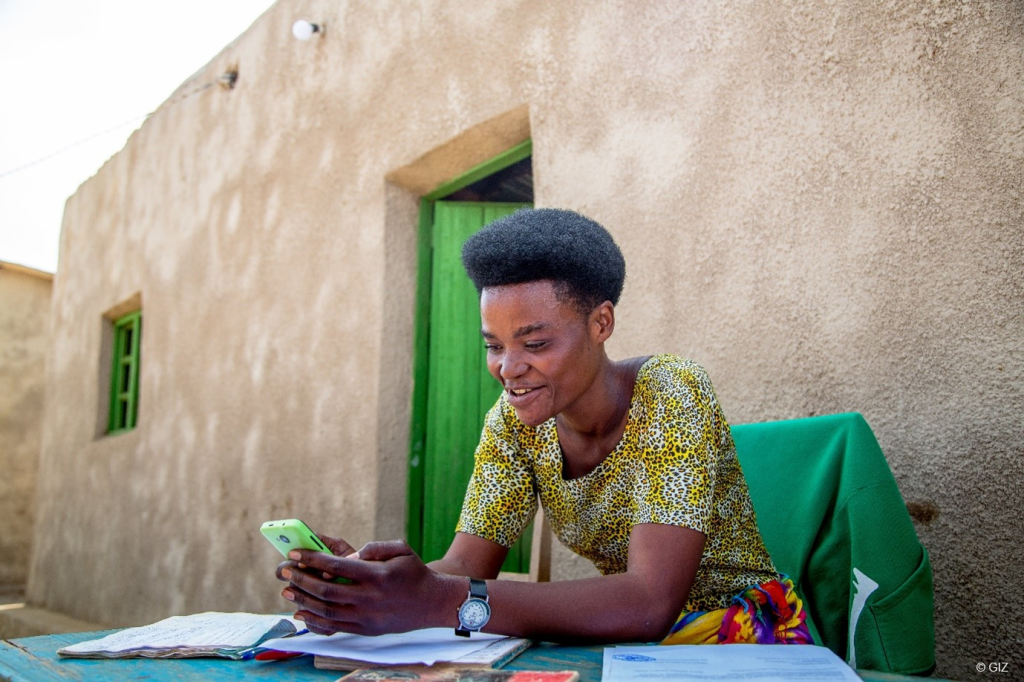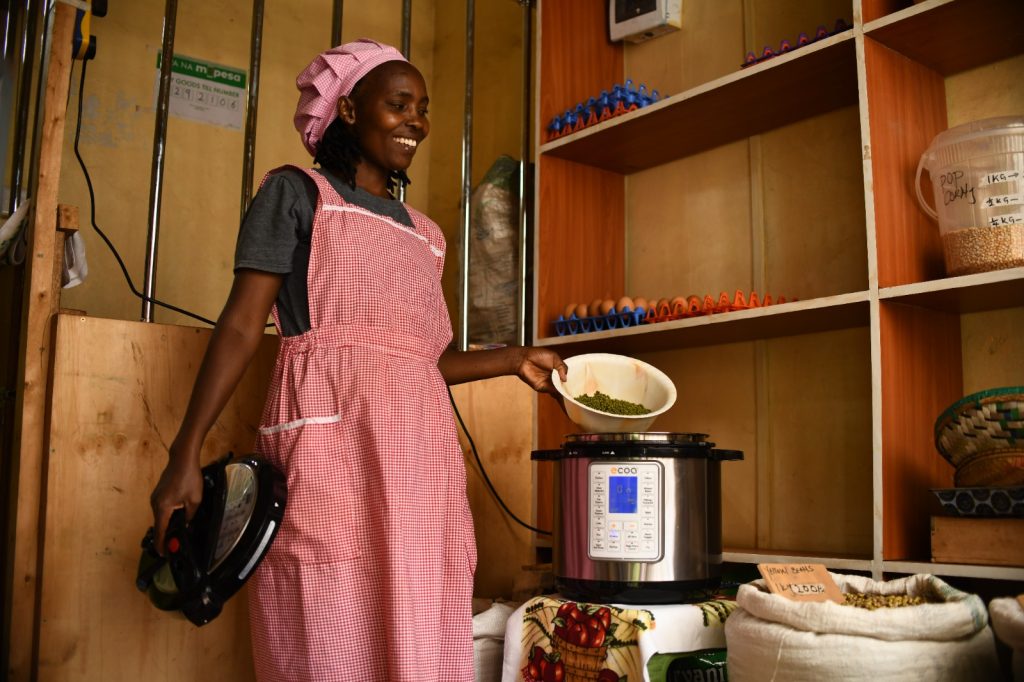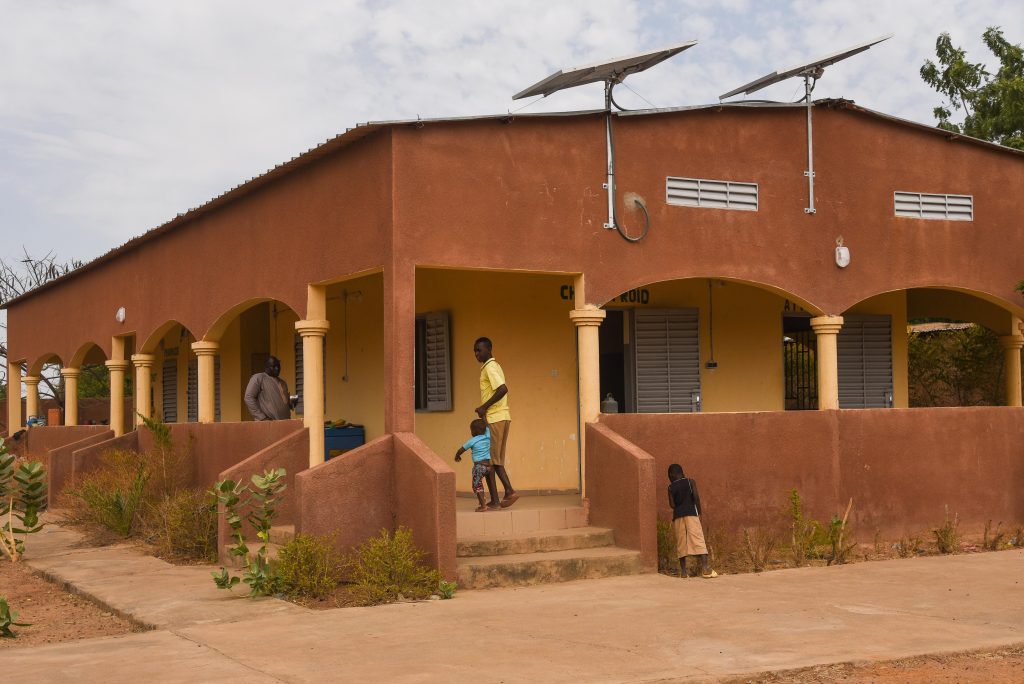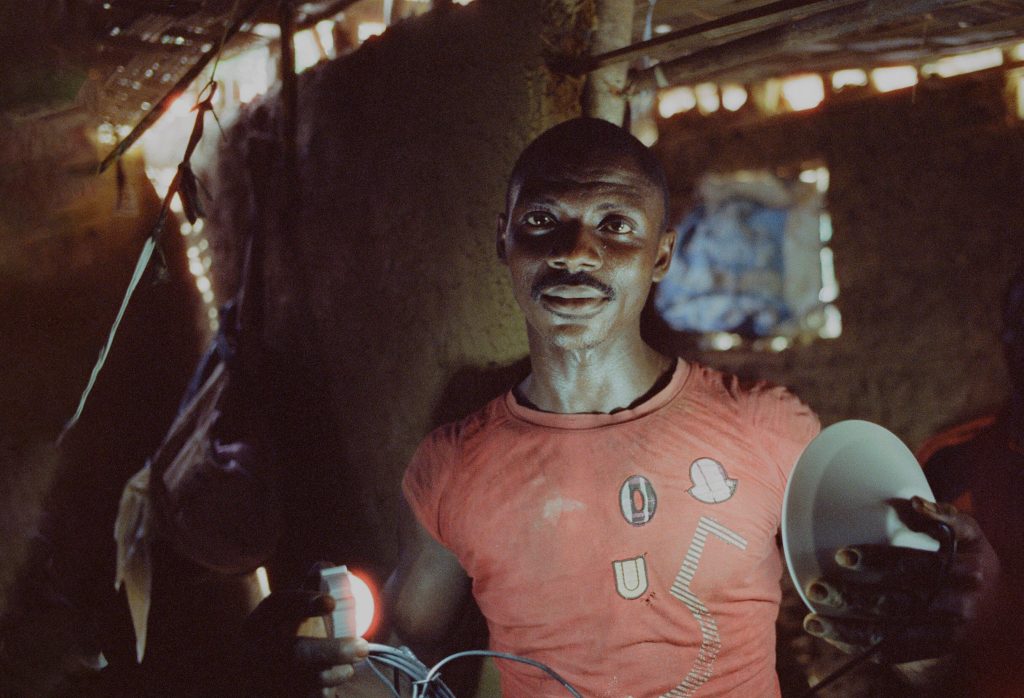Boosting implementation, increasing impacts for global energy access
An energy efficient fishsmoker in Senegal, digital tools for faster verification of installed solar-systems for refrigerators or crowdfunding schemes for enterprises in the energy sector – these are examples of innovative solutions, developed by EnDev. To reach SDG 7, achieving energy access needs to happen at a higher pace and with increased impacts. That is why EnDev is dedicated to continuous learning and innovation and continuous improvement and adaptation in response to evolving challenges and opportunities. The programme encourages new approaches and business models, tests their viability in the market, and scales them up effectively.
EnDev’s Ambition Level
EnDev’s learning and innovation agenda aligns with the international call to scale up capacity building. Innovation, both in pursue of technical solutions and business approaches, is core to EnDev’s work. EnDev aims to foster a higher pace of reaching results and increase the impact of the EnDev programme and beyond by
- exploring innovative solutions in implementation,
- fostering knowledge exchange among the SDG 7 community, and
- country specific knowledge management.
By fostering innovation, sharing insights, and aligning interventions with global objectives, EnDev remains at the forefront of efforts to address energy challenges and drive positive change worldwide. EnDev will spur and mainstream energy access innovations, and share its learnings broadly with partners.
Innovative Solutions in Implementation
Innovative approaches are an integral part of EnDev’s portfolio across all areas. By encouraging new approaches and business models, testing their viability in the market, and scaling them up effectively, EnDev is dedicated to continuous learning and innovation.
For example, several EnDev projects piloted new ideas and approaches for eCooking. Technological innovation also played a pivotal role, particularly for the productive use of energy. In Senegal the Ministry of Fisheries claimed an energy-efficient fish smoker as the “best innovation in the sector in the last 20 years.” In line with the programme’s LNOB objectives, the smokers are operated by female-led fish smoker cooperatives who previously had no access to investment capital.
Best innovation in the sector in the last 20 years.
Senegalese Ministry of Fisheries about the energy efficient fish smoker. In Senegal, female-led fish smoker cooperatives now operate the energy efficient smokers. With this innovative technology EnDev creates sustainable business opportunities for women who previously lacked access to investment capital.
While innovation and learning are part of every EnDev activity, some projects receive extra funds to experiment with innovative ideas. The goal of this so-called “Innovation Window” is to invite exploration beyond conventional boundaries and open avenues for creative thinking and groundbreaking solutions.
Important learnings and insights from these projects include, for example, that productive use applications may be technically feasible but need to be embedded in the local culture and economy with custom business models to be viable in the long term. Here you can read two examples:
Spotlight On: Impact of consumer subsidies on eCooking adoption in Bangladesh
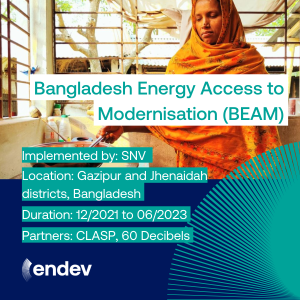 In Bangladesh, a project provided interesting insights into the adoption of e-cooking incentivized with subsidies. While households without prior usage of improved cookstoves showed a high adoption rate, those households who already owned an improved cookstove showed lower adoption rates.
In Bangladesh, a project provided interesting insights into the adoption of e-cooking incentivized with subsidies. While households without prior usage of improved cookstoves showed a high adoption rate, those households who already owned an improved cookstove showed lower adoption rates.
The project’s activities included building trust through community engagement, carrying out awareness initiatives at local stores and offering subsidies to support market expansion. The project also adressed local financial constraints and explored innovative models, allowing low-income beneficiaries to access clean cooking solutions.
Results
The project reachedover 1,500 households and 7,500 individuals. The project involved also 109 local e-cooker SMEs and resulted in a 20% boost in sales for local retailers. It also demonstrated untapped market potential, as 65% of households that adopted e-cooking solutions were first-time e-cooking users. Customers reported a substantial improvement in their quality of life and a reduction in weekly spending. Overall, customers reported a high satisfaction rate for e-cooking solutions.
Spotlight On: Accessing finance for productive use of renewable energy in Kenya
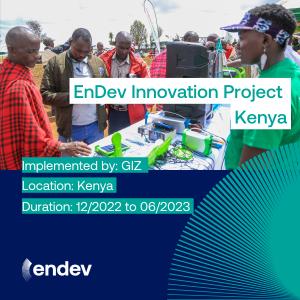 In Kenya, a project promoted consumer financing of Productive Use of Energy (PUE) technologies through informal savings and loan groups. The results-based support included designing PUE consumer financing products and piloting and customising digital platforms.
In Kenya, a project promoted consumer financing of Productive Use of Energy (PUE) technologies through informal savings and loan groups. The results-based support included designing PUE consumer financing products and piloting and customising digital platforms.
This innovative approach addresses common barriers to increasing the adoption of Productive Use of Energy technologies: awareness, limited technology options and affordability. These barriers are worsened by the sub-commercial scale of most MSMEs and climate change shocks that largely affect Kenya’s agricultural and informal sectors.
This project carried out various activities to promote and facilitate consumer financing of Productive Use of Energy (PUE) technologies. Activities included:
- identifying suitable technologies and business cases;
- engaging financial intermediaries and informal savings and loan groups;
- adapting digital platforms to include consumer financing of PUE technologies; and
- creating awareness and customer education.
Results
The project reached 333 MSMEs and farmers, facilitating their access to PUE appliances and equipment, most of which were solar water pumps (82%). Three financial intermediaries committed to integrating PUE into their portfolios, and three digital platforms were adapted to support the promotion and loan management of PUE technologies. Over 100 groups of farmers and entrepreneurs (with a total of 1040 members) were educated on PUE technologies.
Fostering Knowledge Exchange Among SDG7 Community
As one of the largest on-the-ground technical assistance programmes for energy access, EnDev acts as a catalyst for promoting learning among various stakeholders and fostering innovative partnerships within the wider SDG 7 community.
EnDev supports its implementers in the collection, analysis and sharing of findings and experiences in the implementation of energy access activities. In addition, it shareslearnings to a wider audience of energy access practitioners.
With this, it aims to expand the knowledge and understanding of innovative and successful approaches, hoping that this will lead to a higher pace of implementation, actively feed into new pilots and project ideas for scalability, and generally increase the impact of the EnDev programme and beyond.
To foster knowledge exchange, learning and innovation among the SDG7 community, EnDev
- facilitates learning and knowledge sharing
- disseminates leassons learnt through learning events of practitioners’ groups
- develops knowledge products based on experience and research
EnDev Learning Products
Country-specific Knowledge Management
Read here insights from EnDev’s Phased-Out Projects.
These summaries showcase the outcomes of EnDev projects and provide lessons learnt in the programme’s efforts to provide affordable, reliable, and sustainable energy solutions.
Read more about our country portfolios.
